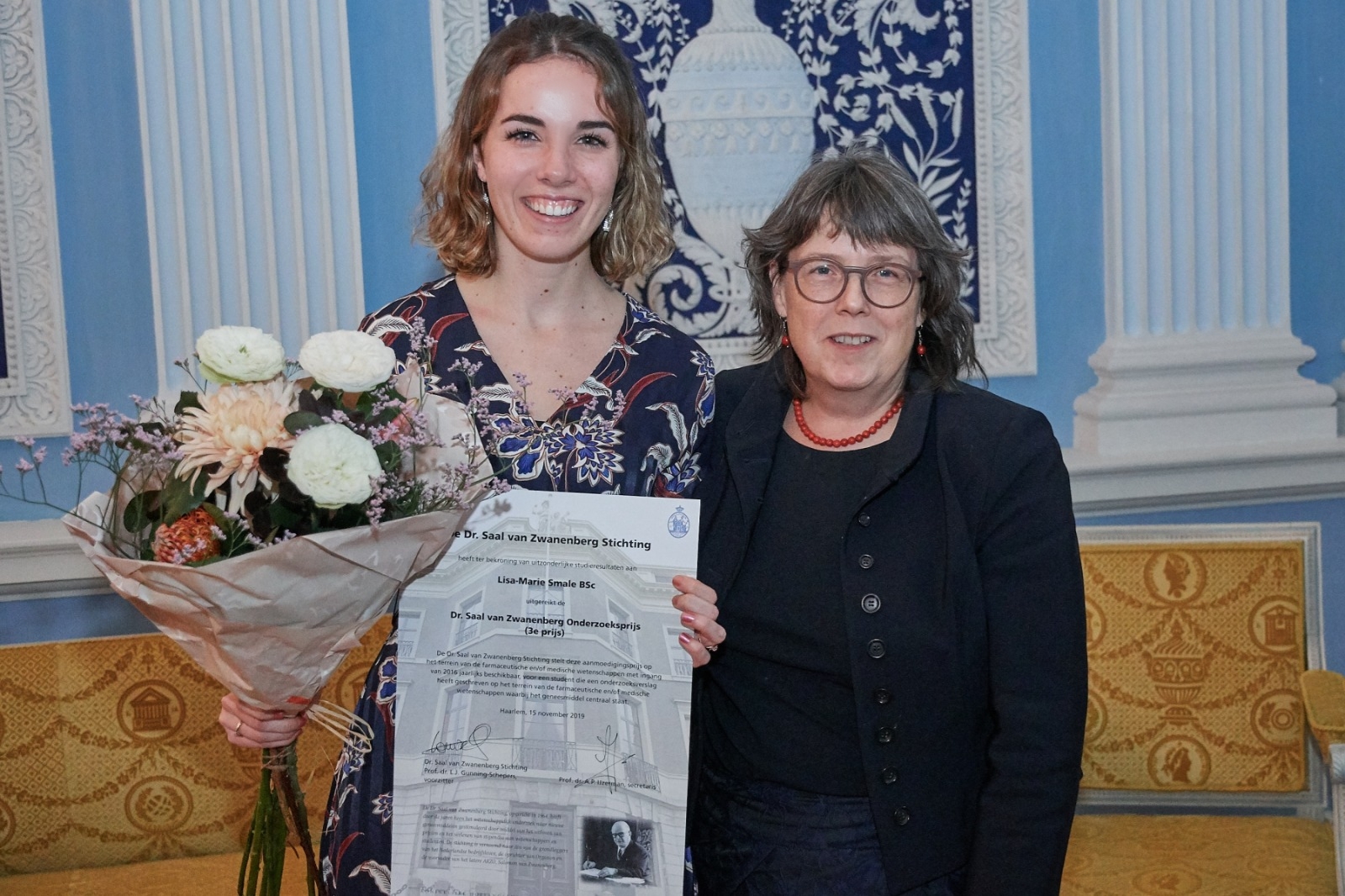Pharmacy student Lisa Marie Smale awarded Dr Saal van Zwanenberg Prize
03 December 2019
On November 15 our student Lisa-Marie Smale was awarded the Dr Saal van Zwanenberg Prize for excellent Master research in the field of Pharmaceutical Sciences. The title of her Master thesis was: "Molecular mechanisms of Aspergillosis: contribution and impact of inter- and intrastrain Aspergillus fumigatus variations on the influence of cyclic AMP expression in host airway epithelial cells”.
The Dr Saal van Zwanenberg Foundation annually awards three thesis prizes to master students in the medical and pharmaceutical sciences. The foundation is named after the founder of Organon and the ancestor of the later AKZO, Salomon van Zwanenberg. The foundation stimulates scientific research into new medicines by awarding prizes and granting scholarships to scientists and students.
The Dr Saal van Zwanenberg Foundation annually awards three thesis prizes to master students in the medical and pharmaceutical sciences. The foundation is named after the founder of Organon and the ancestor of the later AKZO, Salomon van Zwanenberg. The foundation stimulates scientific research into new medicines by awarding prizes and granting scholarships to scientists and students.

Last modified:03 December 2019 2.38 p.m.
More news
-
17 February 2026
The long search for new physics
-
10 February 2026
Why only a small number of planets are suitable for life
